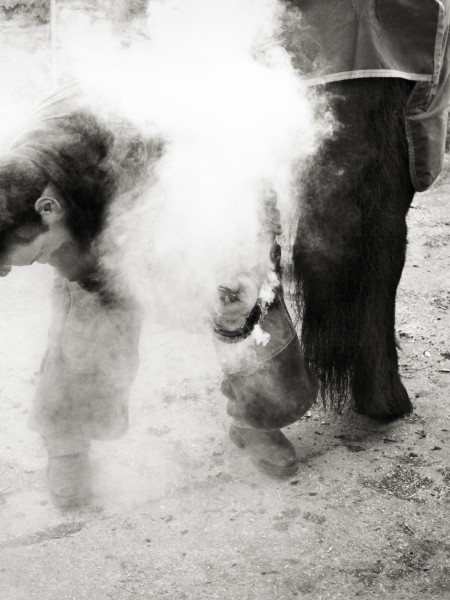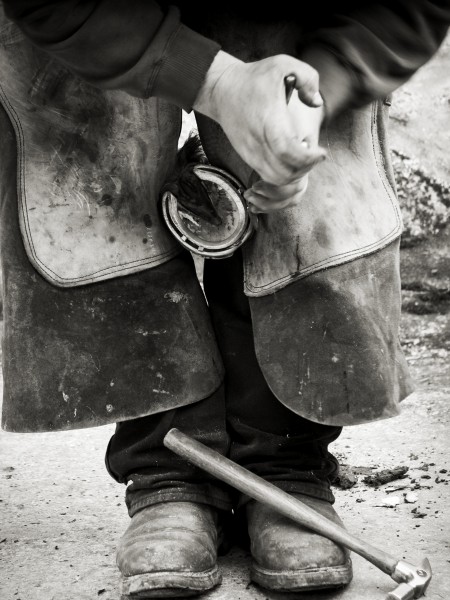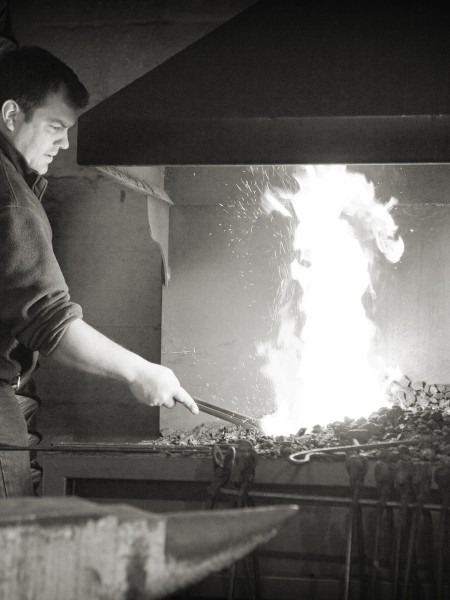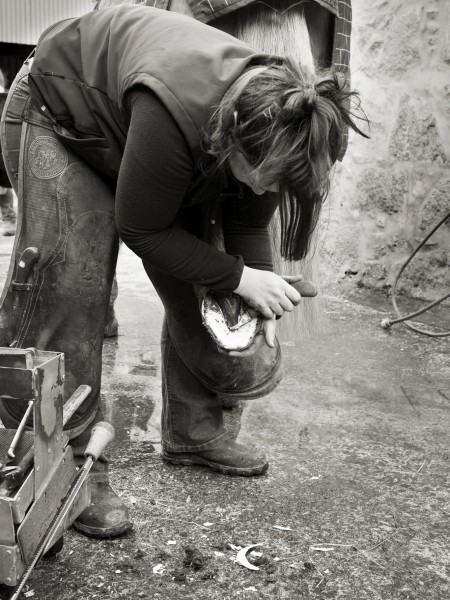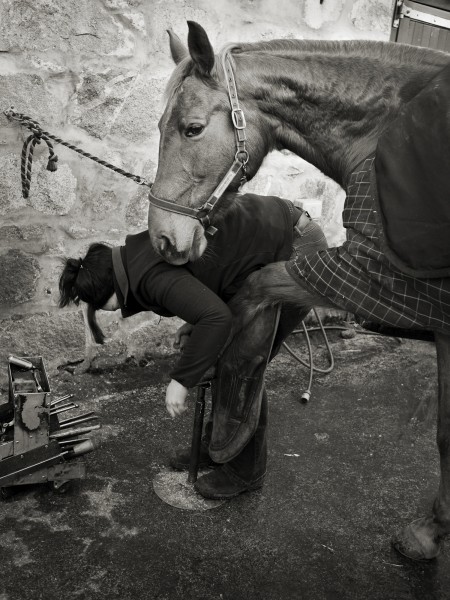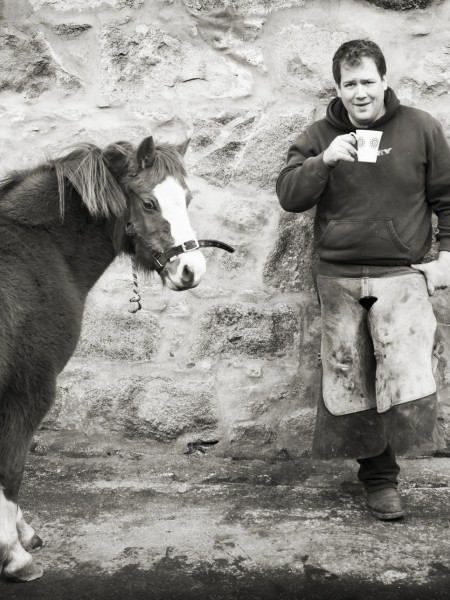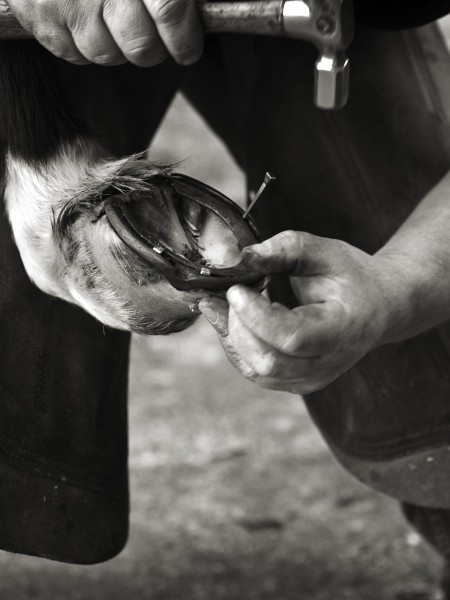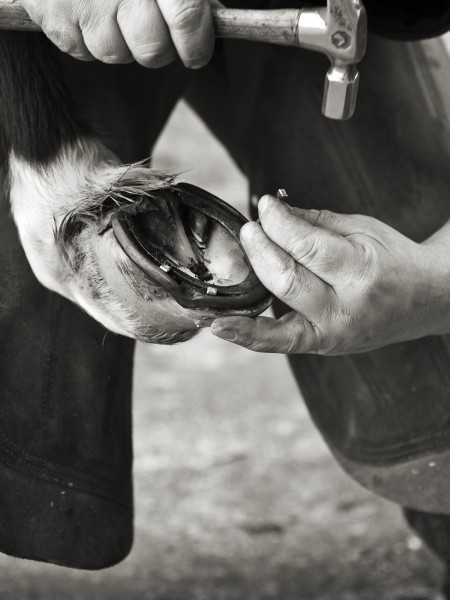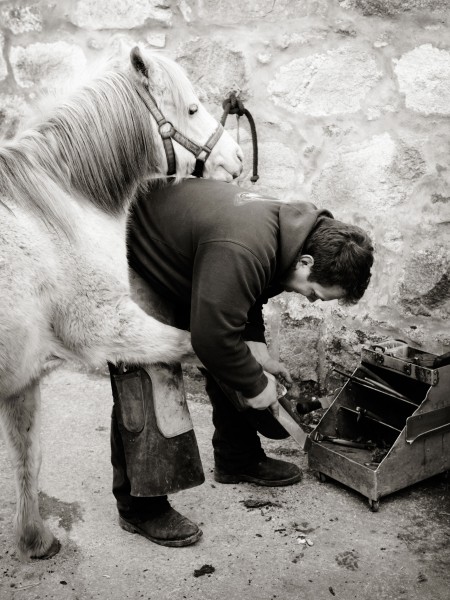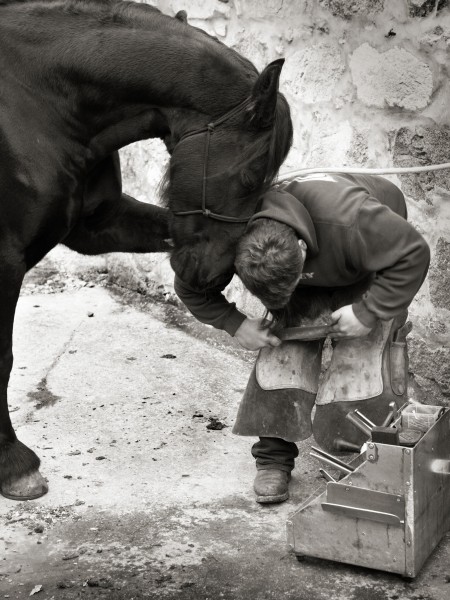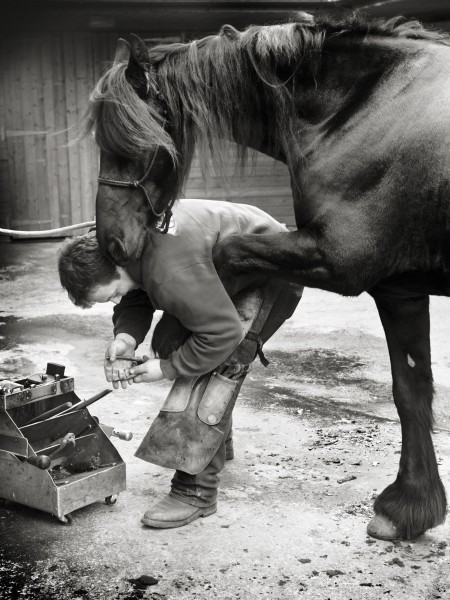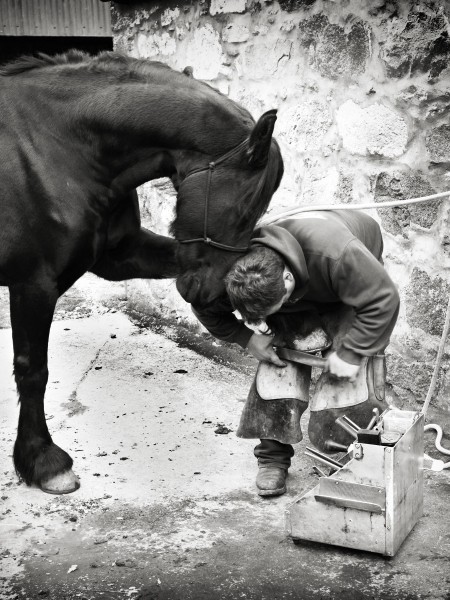Q. What is your principle professional skill?
A. Farriery
Q. Can you tell us a little about it?
A. Shoeing horses and foot care. The general well-being of horses. It’s about 100 years since the professions of farriery and blacksmith split.
Q. How long have you been practicing your skill?
A.I started my apprenticeship in 1996.
Q.How did you learn your skill?
A. A 4 year apprenticeship and then learning while working ever since.
Q. How long did it take?
A. I’m still learning, you never stop learning.
Q. Are there any other people in the region doing what you do?
A.Yes, there are 18 registered farriers in Grampian. There are two and a half thousand in the UK. Second to Newmarket, Aberdeenshire has the highest number of horses per head of population.
Q. How has your profession evolved over the last few decades?
A. Beyond recognition. The traditional skills are going from being empirical to evidence based. The use now of MRI, high speed cinematography, pressure plates, high speed cameras, etc helps the owners to discuss treatment with the farrier. Also mobile technology, having a mobile
phone is a great help for me. The quality of the kit I use, to some extent. The materials I use have evolved, although the core is still steel and iron the use of acrylics, plastic and glue is now possible. Basically there is a fusion of old world skills and new technologies. A farrier is in a position
to be able to keep a horse working and to prevent harm to the horse occurring. For example a plastic shoe can now be made that can be used like a hoof to enable the horse to continue working.
Q. How do you anticipate the future to be for your skill?
A. Should be good, it’s too specialist to die out. A farrier has to be registered. (Farriers Registration Council). There is a guild of farriers based in London (Worshipful Company of Farriers).
Q. How important do you think it is to pass the skill on to the next generation?
A.Massive
Q. How could that be achieved?
A.We are solely apprenticeship based, there is no college route. There is a block release scheme to college where apprentices learn such things as the structures of pathology, etc, but the onus is on the training farrier to bring the apprentice on.
Q. Would you be prepared to train someone?
A. Yes, I do. I am on my fourth apprentice.
Q. Does having a skill change the way you see the world?
A. Yes definitely. I appreciate what skilled people can make. Not necessarily in the traditional methods but good methods done intelligently and effectively.
Q.What kind of rewards do you get from your skill, monetary and/or otherwise?
A. Really good quality of living. I always put 100 percent into my work. I never suffer from insomnia. I get job satisfaction from knowing that I’ve made a difference and huge pride in the work and a job done well. Comfortable horse. Happy owner.
Q. What impact has broadband and the internet had on your work?
A.From my perspective, improving education and knowledge base. Keep up to date reading scientific papers. Want to progress the industry.
Q. What, if anything could be done to help to preserve your skills and support your profession?
A. It is up to our own industry to educate our clients better, it needs to
evolve.
Tel. 07711 867261
